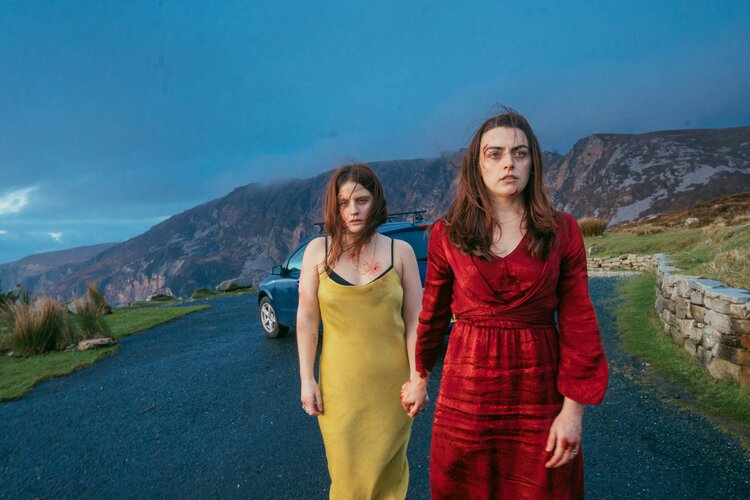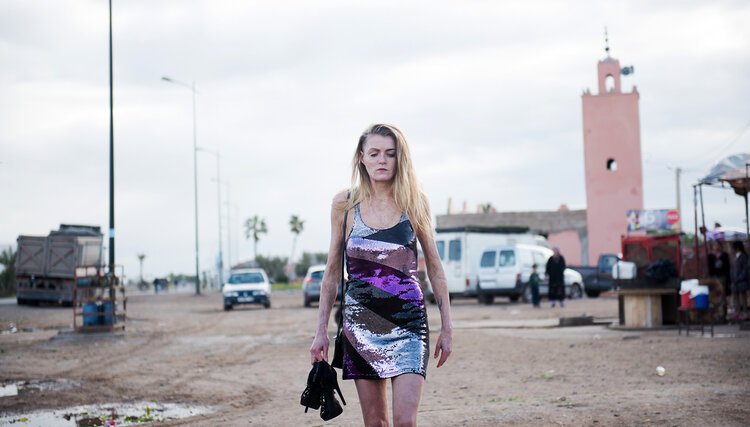An exclusive selection of female-fronted films, in partnership with Galway Film Fleadh
This year, like many other cultural organisations, Irish Film London is presenting our St Brigid’s Day celebrations to audiences online. Alongside our usual free content on Irish Film From Home, which inlcudes online premieres of Irish short films and two exlusive new podcasts, this special trio of Irish feature films allows us to look at some of the issues facing womxn across the world today, which are no less diminished in today’s environment of crisis-response.
To deliver these films to our audiences in the best quality, we’ve teamed up with our friends at Galway Film Fleadh to present films via their Solstice platform. Check out the rest of the program available via Solstice for a look at some restrospective Irish film treats.
Rounding off this program, but serving as a preview on Sunday 31st January, we’ll be joined by the team behind upcoming Irish documentary The 8th, chronicling Ireland’s journey to repeal the 8th amendment and decriminalising abortion on the island, for a Q&A session ahead of the film’s general release later this year. Tickets for that event are available to book here
Films in this programme are only available to view via Galway’s Solstice platform and require an account to be created on the platform.
Films will be available to view from
Monday 1st to Wednesday 3rd February 2021.
Wildfire – 2020, Cathy Brady
Two reunited Irish sisters uncover secrets from their mother's past.
Playing as part of reduced festivities at BFI London Film Festival and Toronto Film Festival in 2020, Wildfire is a tense, and poignantly emotional drama which offers a window into the intimate sororal and maternal relationship dynamics of one family, but which also presents the inter-generational conflicts of the border region as deeply personal anxieties, a quality which is often overlooked in socio-political conversations but which adds to the tense atmosphere Cathy Brady creates here.
With star turns from Nora-Jane Noone and Nika McGuigan, who sadly passed away since the film’s completion, Wildfire authentically illustrates what small town relationships – and grief – can mean in a place where the conflict between characters is juxtaposed with deep, societal division.
CW: suicide
Dirty God – 2019 Sacha Polak
Dirty God is a portrait of a woman with incredible resilience. Jade is no passive victim; she makes her own choices - good or bad - and deals with the consequences.
Director Sacha Polak, in her first English language feature, dives straight into the highly subjective world of young mother and acid attack victim Jade, played with astonishing candour by newcomer Vicky Knight, herself a burns victim.
While Dirty God is of course a film about a young mother; a victim of a violent misogyny; and an indictment of the superficiality of a society addicted to impossible, exclusive standards of beauty, it is also a powerful yet quiet film filled with thoughtful reflections on the relationships between mothers, daughters and grandmothers which leave a lasting sense of empathy for the audience. Lauded as a huge leap forward in representation on screen, the film opens up a range of experience through familiar urban setting and takes us to unexpected territory in understanding the world through Jade’s eyes.
Room - Lenny Abrahamson, 2015
After years of being held captive in an isolated shed by a kidnapper, Joy and her little son, Jack, manage to escape the confinement and gain their freedom.
IFL patron Lenny Abrahamson’s Room saw him propelled to international prominence after years of high regard in Ireland for his earlier work, and breakout success in the UK with Frank, released a year earlier. It’s a film which is indicative of Abrahamson’s wider interest in exploring broad existential themes in his work, delivered with a stylistic ambition that has garnered broad recognition from critics but is also noted in Barry Monahan’s academic analysis of the director’s work, subtitled “A Filmmaking of Philosophy”.
Room is included in this celebration of female film as an example of an Irish film which explores the deepest of cultural bonds, that of a mother’s love. Instinctive, maternal bonds drive the resilience of Brie Larson’s character to persevere, in a story which is often unsettling to watch, but is deeply rewarding for those who do. As Rolling Stone magazine’s review said at the time of release; “Room is a small movie, but its impact is enormous.”
CW: domestic abuse, sexual assault
Lenny Abrahamson will also be joining new Head of Irish Film London for an exclusive talk about Room in a separate event, available to book here



